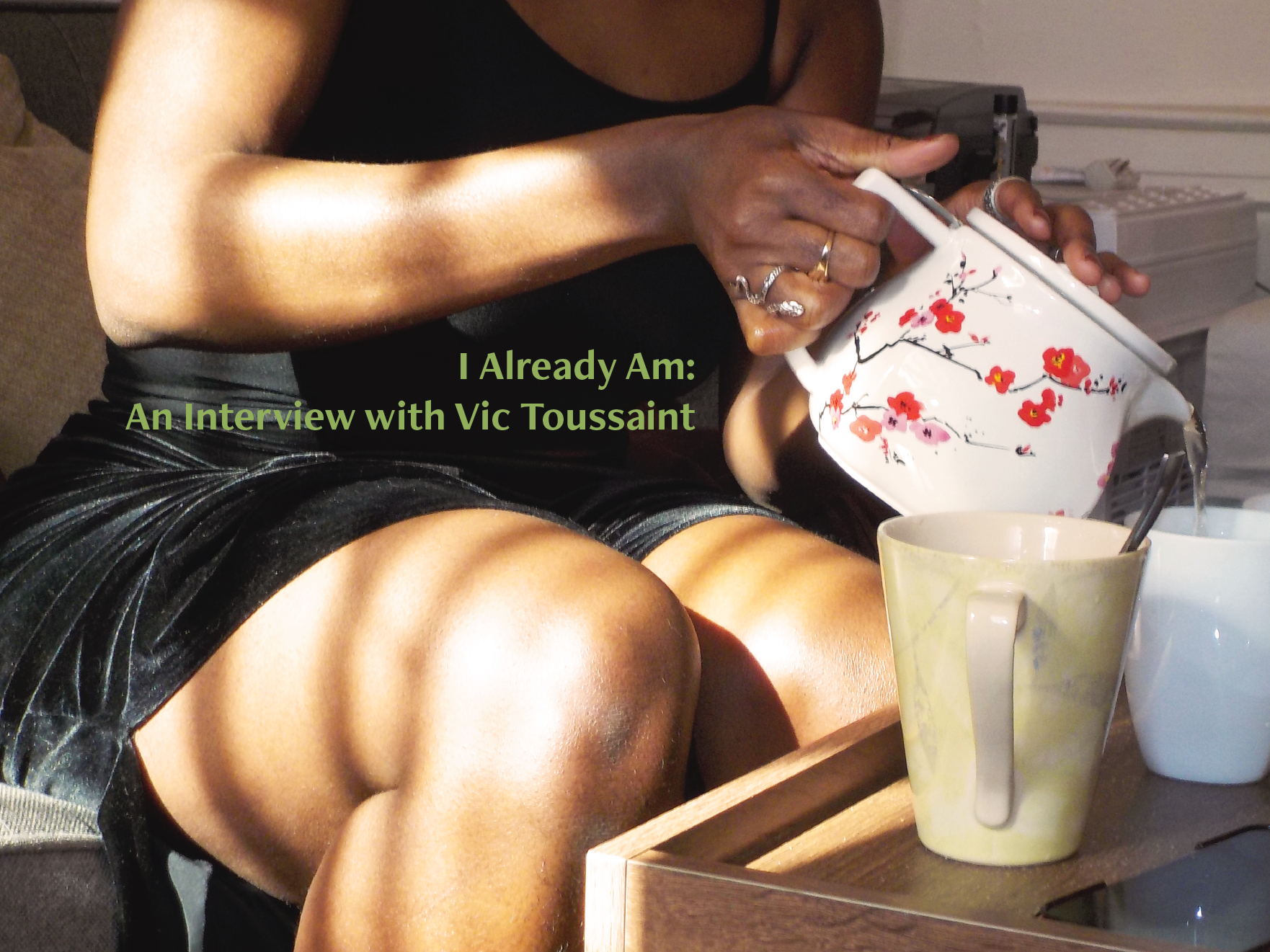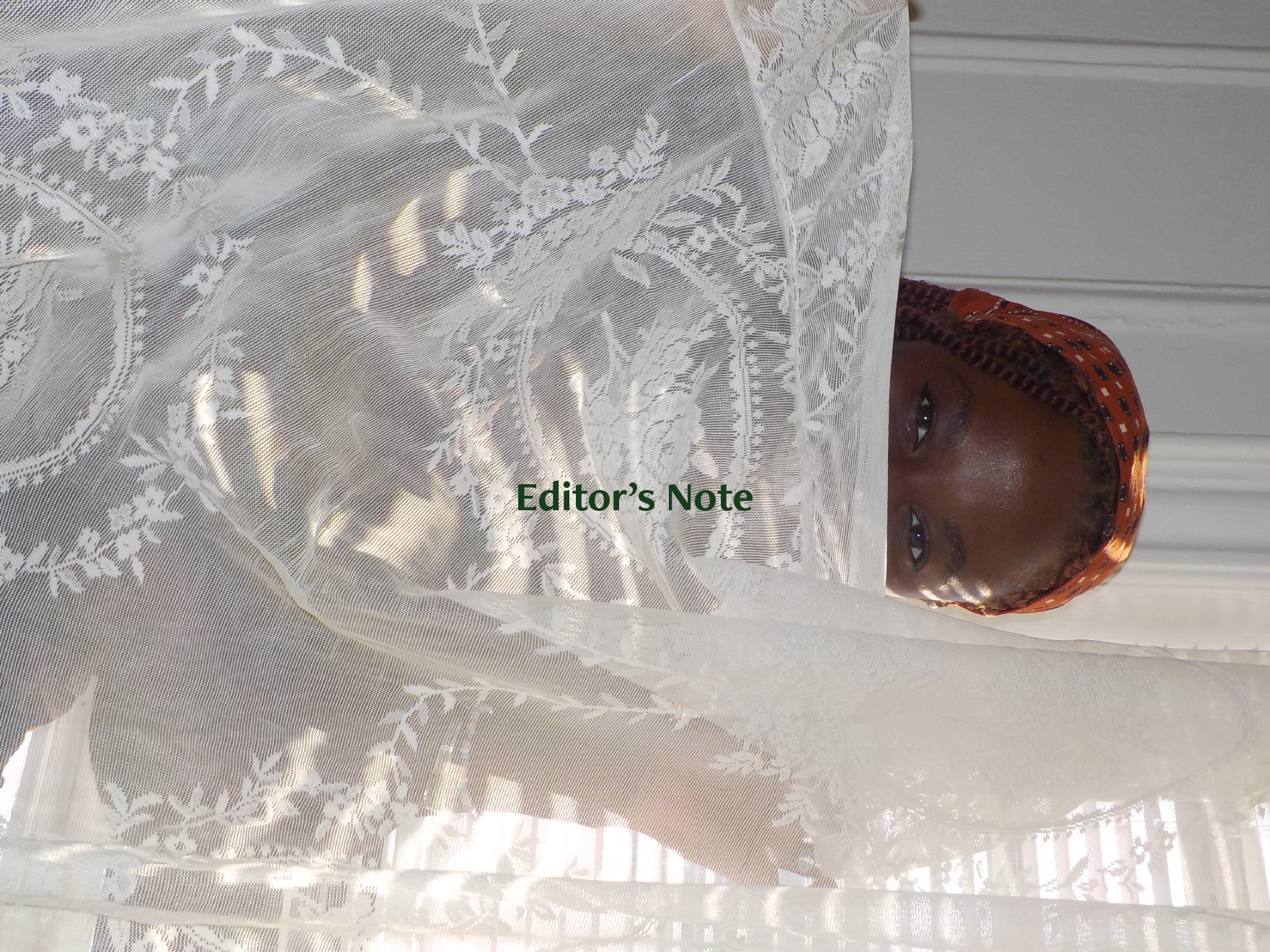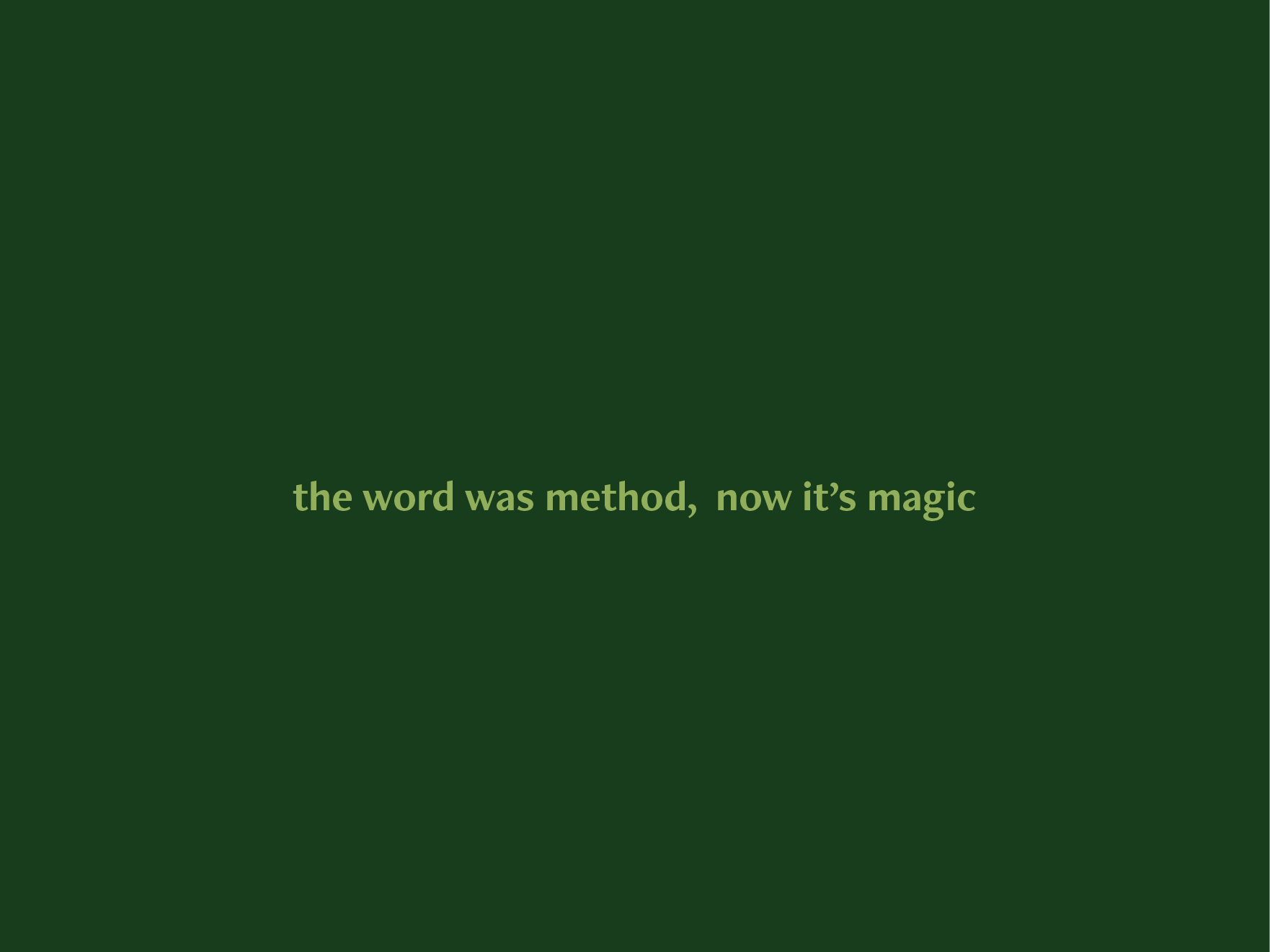By: Adesuwa Agbonile
My mother enters America alien.
She arrives as a Nigerian citizen on a tourist visa; American legal code names her nonresident alien. An umbilical cord ties me to her; when I spill out onto american soil fresh new wailing, american legal code names me Citizen. This is a synonym for Human.
For this, I have only the Black Americans who came before me to thank, those Reconstruction organizers named non-Citizen/Slave, who insisted on a new world where they were Citizen/Human.They wrote it down in the american constitution, called it the fourteenth amendment, and birthed a new world.
A new world. A world where my mother can enter America alien and give birth to Citizen/Human. Give birth to something New.
American legal code creates aliens out of humans. Octavia Butler had a bigger imagination. In her Xenogenesis trilogy, she creates the Oankali – tentacled, uncanny, distinctly un-human aliens.
In Dawn (the first book in Butler’s trilogy), the Oankali arrive in a post-nuclear war Earth. These aliens are convinced that humans are doomed to extinction, because their biology is a deadly mix of intelligence and hierarchical behavior (Butler got the idea for her series after witnessing the nuclear arms race of the 80s). They capture Lilith Iyapo (along with many other humans) from earth, take her up to their spaceship, and put her to sleep for centuries. When the Oankali finally wake Lilith up, they tell her that she has been chosen to be the mother of their new world.
This is how the Oankali work; this is their biological drive. They have a physical need to interact with other life. They scour space, looking for living things. When they find life, they mix its genetic coding into their own genetic code – engineering offspring that are a mix of Oankali and something new. Eventually, those offspring take off into space once more, and the cycle continues. Essentially: the Oankali want Lilith to have their children. They want her to create a new species with them. A species not quite Oankali, but not quite human either.
In Adulthood Rites, the second book in the Xenogenesis series, we watch this new species take shape. Lilith, who has returned to Earth, gives birth to Akin.
Akin gains consciousness in the womb and can speak cogently soon after he is born. As a baby, surrounded by his Human and Oankali parents, he understands himself as “part of the people who touched him – that within them, he could find fragments of himself.” (6) This is the Oankali in him. Butler’s aliens are intrinsically connected; they can communicate with each other through simple touch. As children, they are deeply, intimately bonded with their siblings, almost as if they share the same brain.
But Akin looks remarkably human – his only tentacle, the most Oankali-looking thing about him, is in his mouth, and can be mistaken for a tongue. It is this human-looking-ness that puts Akin in danger. When he’s still a baby, Akin is kidnapped by resistor humans who have refused to join with the Oankali in their species-making quest. These humans are repulsed by the aliens. They kidnap Akin because he looks like a human baby (impossible in a post-Oankali world, the Oankali have sterilized defector humans so they can’t reproduce on their own). But they soon realize Akin is not quite human. He has a tentacle for a tongue; he can speak in complete sentences and remembers everything he is told. Akin, trapped in the resistor village, misses the birth of his closest sibling, losing the chance to experience Oankali sibling-closeness.
Split from his family, unable to bond with his sibling, Akin struggles to understand the humans who took him. At one point, he presses up against Tate, the human charged with taking care of him. With his Oankali sensory tentacle touching her neck, he tries to “become her, to join with her as he might with his closest sibling.” (164). He can see her down to the cellular level – but he is still achingly separate from her. Like with everyone else in his life, “He could know so much and no more, join so close and no closer.” (164).
Later, Akin describes this experience to Tate: “‘It’s too late for me to bond with my sibling … I was thinking about that last night. I was feeling … Lonely wouldn’t really be the right word. This was more like … something died.” (165). Akin is grieving his separation from his sibling, his inability to ever be bonded in that Oankali way. He is grieving his fundamental aloneness; one-ness. He is being human.
This is the central irony of Adulthood Rites, and its most interesting paradox. Akin’s human captors regard him as alien. But Akin's understanding of his separateness from other humans and from other Oankali, his inability to bond and flow seamlessly into another body, his confinement to himself – that’s not Oankali, that’s not alien. Akin’s loneliness is the human part of him.
Akin is alien because he is descended from beings from a different planet. He is human because he can feel his separation from other humans, his pointed individuality. He is human because he can’t merge seamlessly with another. He understands the distinction between the self and the other and the pain that comes along with it.
Dark-skinned, raised by Nigerian immigrants, Black, and woman, I have spent nearly two decades naming myself other/strange/alien.
Dark and woman in an imperial world; alien. Stranger in my grandmother’s eyes, looked upon with suspicion by my cousins, keeping my mouth closed in Lagos, alien. Being followed around in a Bushwick deli, invisible in the middle of my MFA classroom, a name mangled by white and Black mouths alike, alien. A particular pain when my mother looks at me haunted, explains to me that she doesn’t recognize me. Can’t quite understand me. When I was in her womb we shared cells, we were joined, inseparable, one. And yet – when she birthed me I became New, and now I am achingly separate from her. I want to tell her that I am someone she can recognize and join with, but I cannot climb back into her womb. I used to name this feeling alien, but Akin gave me new language. Akin helped me call it lonely, and then think again. Maybe lonely isn’t quite the right word. Maybe it’s more like the feeling that something has died.
Reading Adulthood Rites, a book about literal, actual aliens – like, non-human life forms, from space – showed me that feeling otherness, feeling loneliness, feeling the deep-down grief lost connection, does not mean being alien. It means being human.
When I feel lonely, because the world figures me other, that feeling is, chiefly, a reminder that I am human, not alien. No matter what any sort of imperial legal codes (or my grandmother. Or my mother.) say.
So. I am not alien. But I feel lonely. I grieve all the versions of myself I will never become. I acknowledge my separateness from those who birthed me and those who lived around me. What do I call myself? I call myself New.
Akin is eventually returned to Lilith and his Oankali family, but his understanding of humans and their nature leaves an indelible mark. He comes to the belief that resistor humans deserve to survive and reproduce on their own – without the Oankali. When Akin eventually goes up to an Oankali spaceship, he decides to advocate for the resistor humans. With the help of an ooloi (a genderless Oankali responsible for gene-mixing), Akin transmits the feeling of his experience with resistor humans to all of the Oankali. “In the manner of a storyteller … [Akin] made the ooloi understand on an utterly personal level what he had suffered and what he had come to believe.” (246)
Akin convinces the Oankali that the resistor humans deserve another shot at trying to continue the human – just human – race. The Oankali have claimed Earth (after their genetic mixing is complete, their spaceship eats all the life on the planet and then launches back into the dark universe), so the book ends with Akin embarking on a new mission – taking resister humans to Mars and helping them settle there.
The ooloi that helps Akin communicate with the rest of the Oankali affirms this quest: “If I were a Human … I would be a resister myself. All people who know what it is to end should be allowed to continue if they can continue.” (250) Even the humans who refuse to take part in the new world the Oankali are building have to turn towards a new world of their own. A world of humans on Mars.
In Imago, the last book in Butler’s Xenogenesis trilogy, the focus turns to the humans who stay behind on Earth. Lilith gives birth to the first Human-Oankali ooloi, named Jodahs. In the Oankali world, ooloi are the building blocks of their species – the reason they can continue spreading and changing across the universe. A human-Oankali family unit is five: two human mates, two Oankali mates, and one ooloi, that mixes the genes of the other four to make a child that is the perfect genetic blend. They are literal conjurers of the New.
Jodahs (who Butler refers to with the pronoun it) is a remarkable mix of human and Oankali. It looks more human than any of the other Human-Oankali children before it. When it meets humans on earth who have thus far escaped Oankali notice and have committed to living separate lives, it’s able to change its appearance into the face of someone the human used to know and love. It offers connection and an antidote to grief. And as an ooloi, it can heal humans, tending to their wounds on a cellular level, switching off genes that will cause disease before they are activated.
With the birth of Jodahs, New seems not only possible, but seductive. New as: a world committed to healing, bolstered by connection, filled with familiar faces that you love. The humans on earth decide to stay with it. They decide to build a new world with it.
Butler imagined aliens. But she also imagined humans – and in doing so, gave us humans a road map for how we might live. In Butler’s imagination, it is impossible for humans to remain static, even as they cling to their innate humanness. Regardless of their convictions, Butler’s characters are always turning to face some sort of New.
It’s instructive reading for times of chaos, doom, apocalypse, and cries of alien invasion.
So. If the aliens came to earth. If they scooped you up and took you to their spaceship. Would you create a New world with them?
I’m seriously asking. Think about it. Answer it for yourself. Would you birth something new? Would you have alien children and call them your own? Or would you be a resistor? And if so, what sort of life would you build for yourself on Mars?
My answers to these questions change (right now, though, I would definitely be an alien mother), but I think the point is less about the answer and more about confronting the question.
The work of turning to face your New is difficult. It is a practice, it is a struggle. Asking myself these sorts of questions helps. So I’ll keep asking. What would I name my alien children? That is, what kind of future am I building? How can I use my imagination to trace out the things I can’t see yet? How can I take small steps towards the life I don’t have yet, but know I want? What would I do with my freedom if I got it? What will I do with the freedom that I have? What do I want to take, from the world around me now, and the world as it was before; what do I want to leave behind? What does my New mean? What does your New mean?



